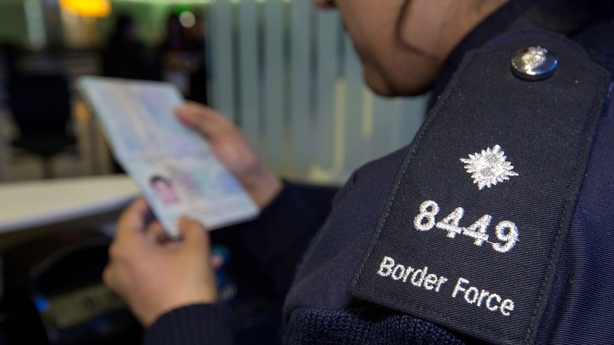The border has emerged as a crucial sticking point in the way of Brexit negotiations moving on to phase two.
Here’s a look at some of the key questions on what will become the UK's only land link with the European Union.
Why is the border so important to the talks?
After Brexit in just over a year's time it may become the point where customs checks and tariffs could be levied on goods passing back and forth.
It is one of three issues which have to be resolved, along with citizens' rights and the settlement of the UK's financial obligations, before the EU agrees to move on to post-Brexit trade talks.
What does the border look like now?
There are almost 300 crossings between north and south along the 499km frontier. Once heavily militarised, it is now almost invisible. You can drive freely across the border, hardly noticing when you leave one jurisdiction and enter the other, apart from the different road signs.
Could you draw Ireland's border with Northern Ireland? The border with Northern Ireland has become a major Brexit stumbling block. pic.twitter.com/yyqCRpPFuW
— Channel 4 News (@Channel4News) November 28, 2017
Why would Brexit change that?
Brexit itself is not the sticking point, it is the type of Brexit the UK envisages. If the UK left the EU but remained in the single market and customs union the border problem would be lessened. The issue has been complicated by the UK's insistence on leaving Europe's trading and free movement frameworks, as it means the border will become a barrier between two different regulatory and economic zones.
What's the UK's solution?

In the summer, the British government attempted to put some meat on the bones of its oft-quoted pledge about not returning to the "borders of the past". Its position paper on the border envisaged the retention of an invisible frontier with no physical infrastructure.
The document proposed a customs arrangement that would see 80% of businesses on the island of Ireland entirely exempt from any new tariffs post-Brexit. That exemption would apply to small and medium-sized enterprises involved in localised cross-border trade. In respect of larger companies engaged in international trade, the UK government suggested they could adhere to any new customs regime by completing retrospective declarations either online or at their premises.
The plan was derided by EU figures, who said having an open border between two different regulatory frameworks was not credible.
What's Ireland's position?
"Sometimes it seems that they haven't thought all this through." Leo Varadkar calls for clarity on border. | More: https://t.co/0QKWPT8tT4 pic.twitter.com/MqwzoHRcam
— RTÉ News (@rtenews) November 17, 2017
Taoiseach Leo Varadkar has said Ireland is determined to hold firm on the demand for matching customs rules on both sides of the border after Brexit
He told the Dáil last week the proposal to avoid a hard border was backed by all members of the EU27, but he made clear that even if there was a softening of stance among other European leaders he would not back down.
"We have the absolute support of the other European Union member states that are remaining. We have not come under any pressure as yet to soften our position.
"However, I am not so naive as to think that that may not occur. We will avoid at any cost being isolated. However, even if we are isolated, we have to hold to this position, in my view."
What's the EU's stance?
The EU believes a "soft" border can only be achieved if either the whole of the UK, or even just Northern Ireland, remains either within the single market and customs union, or some specially-tailored system that adheres to those regulations.
Why is the UK not content with that?
The British government insists the whole of the UK must leave the EU on the same terms and that to leave Northern Ireland essentially half in and half out would undermine the constitutional integrity of the UK. The Tories' confidence-and-supply deal with the Democratic Unionists at Westminster makes the chances of a government change of heart on this key issue even less likely. The DUP has made clear its position is that Northern Ireland must be treated like any other part of the UK. It has accused nationalists, republicans and even the Irish Government of pushing the border plan as a means to bolster the case for a united Ireland.
So it is not just about trade?
No, there is a significant political dimension. A free flowing border has been a result of the peace process. It is also symbolic of the hugely improved cross-border relations in recent decades.
Any move to resurrect checkpoints, albeit for very different reasons from the Troubles, has the potential to unsettle that dynamic. Some have even claimed it could be the spark that reignites violence, although others have dismissed such predictions as dangerous scaremongering.

